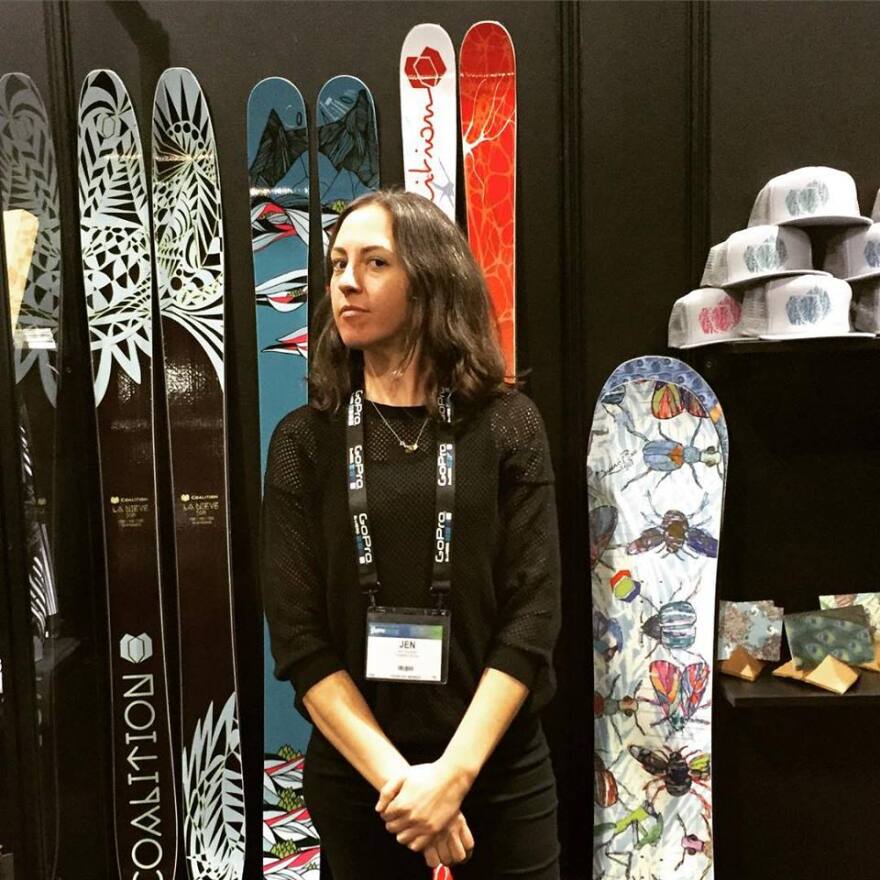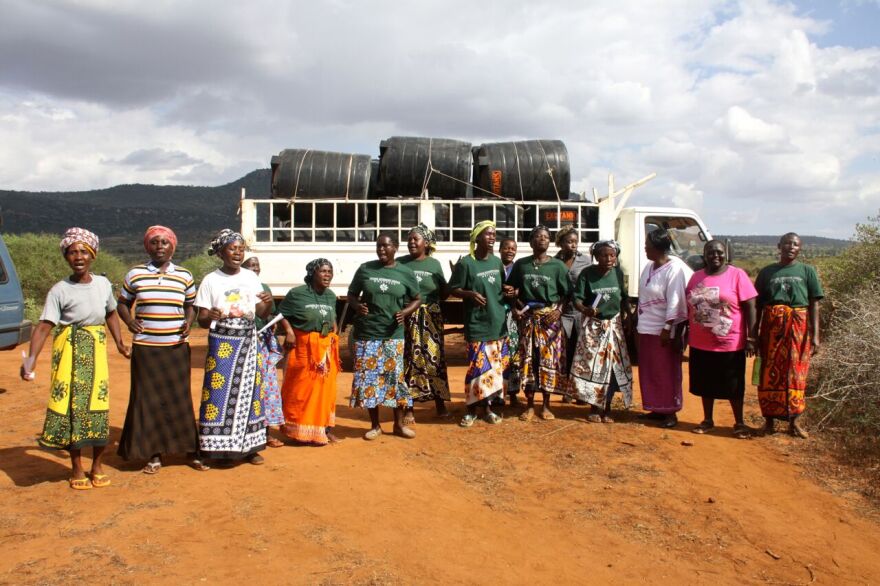Female entrepreneurship is on the rise globally. And with the female-founded software company CAEKmoving its headquarters to Reno this year, the topic is getting more attention across the region.
Jen Gurecki is the co-founder of local women’s ski and snowboard company Coalition Snow, the organizer behind the annual Women As Change Makers Summit, and the founder and CEO of Zawadisha, a social enterprise that provides microloans to women in rural Kenya.
Reno Public Radio's Noah Glick recently sat down with Gurecki to talk about her work with women locally and internationally.
NG: There’s a lot of growing interest around female entrepreneurship, especially here in the area. So what do you see as some of the biggest challenges facing women entrepreneurs?
JG: I think we’re in a very interesting time, where there is an incredible amount of what I would call hype around being an entrepreneur and being a women. And I think one of the biggest challenges is being able to navigate the complexities of that, of what’s real and what’s just hype.
You get a lot of people who say they want to support you, you get a lot of carrots dangling in front of you. Whether or not that plays out into something that is going to help you grow your business is another thing. So I think that might be one of the most difficult things, sort of confusing the hype with the real change.
Like, “We want to support women. Great—we’re supporting women by saying we’re supporting women.” And? So very, very well intentioned people, lovely people, I think people maybe don’t know how to really help.

How can the community help support women entrepreneurs? Is there something different women need to help them thrive and succeed?
I actually don’t think it’s women that need to change. I think it’s everyone else. So I think there’s plenty of women who are crushing it in business, and it’s more changing the entrepreneurial ecosystem to understand how to work with women or to understand why it’s important to invest in women.
So I don’t think women need to change or continue to do anything better, I think everyone else needs to kind of pick up on the fact that we’re 50 percent of the population and we’re essentially challenging the status quo. We need a paradigm shift, and we need that before we need to do more.
You organize an annual summit called Women As Change Makers. What is that event, and is that helping to change perception of women in the business world?
Women As Change Makers is a one-day event that will be here in Reno at the Whitney Peak on October 21. And the purpose of the day is essentially to connect women and help them elevate their status in their careers or their venture.
As a female founder and someone local to the area, I understand how much women need more exposure, particularly in business. So this is a way to give female founders a way to pitch their companies in a very supportive environment. So it’s like Shark Tank without the bite. And all of the proceeds go to support the work of Zawadisha, to provide more microloans to women in Kenya.

That’s a great segue actually. Let’s talk about your organization, Zawadisha. What kind of work are you doing and what are you seeing?
Zawadisha is a social enterprise based in Kenya, and we provide small loans to rural women to help finance their livelihoods. Essentially what we do is we provide clean energy and water solutions, so things like solar lamps, rain water tanks, and clean cook stoves. We purchase those items and provide them on credit.
We’re essentially getting toxic kerosene out of the home, we are freeing up six-plus hours a day that women would historically spend walking to collect water. So there’s more than just the health aspects or the financial side. It’s really a holistic approach to making the lives of women better.
So how does what you do in your charitable work differ from the traditional model?
We don’t give handouts.
So there’s this amazing woman, Mama Mercy. She’s an environmental activist, she is an entrepreneur, she’s in her sixties. And one day we were sitting up on a rock and she said to me, “Jennifer, free things have ruined Africa.”
No one wants free things thrown at them; that is completely disempowering. We need to change that. We need to actually partner with people, versus just giving handouts of the things that we think people need and then hoping that maybe that will make a difference.





